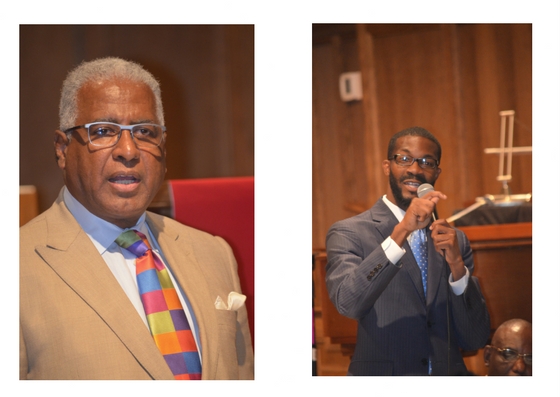The official results are in for Birmingham’s municipal election. But the numbers leave lots of questions unanswered.
Do Birmingham voters turn out for city elections?
Birmingham has 142,800 voters, according to the City Clerk, and less than a third went to the polls or voted absentee in this city where so many battles were waged over voting rights.
At one location – Fire Station #32 on U.S. 280 — less than 2 percent of registered voters cast ballots in the city election. On the other hand, 40 percent of registered voters at Avondale Elementary School cast ballots. Overall, voter turnout for the city was just under 27 percent.
Alan Tharpe, a political science professor at Miles College, says that while voter turnout is a regular research topic, there are no clear explanations for low participation in municipal elections.
“In some European countries, Election Day is a holiday, and in some places, elections are held on weekends,” he says. Still, there’s some debate over whether holding elections on a weekend or holiday in the United States would make a difference, he says.
Is the glass half empty or half full for Woodfin or Bell?
Mayoral contender Randall Woodfin and incumbent William Bell were the top vote-getters in the August 22 election. Woodfin pulled in 15,656 votes — about 41 percent of the total. William Bell got 14,011 votes, or 36.5 percent. So Bell and Woodfin were separated by about 1,645 votes.
Tharpe says that when he talked with Birmingham’s political movers before the election, they favored Bell. But he says for students, it was clear that their choice was Woodfin.
“It’s clearly an interesting divide,” he says.
Building contractor Chris Woods had the largest share of the votes after Woodfin and Bell, who will face each other in a runoff October 3. One key question now is where will the 6,957 Woods votes go in the runoff?
Will history repeat itself in the runoff?
In December 2009, Bell trailed lawyer Patrick Cooper in an election called to replace former Mayor Larry Langford, who had been sentenced to prison.
That race had the highest percentage of voter turnout in recent years, with 41 percent of the city’s voters casting ballots. Bell beat Cooper in a runoff with 54 percent of the votes, compared with Cooper’s 46 percent.
Both candidates increased their numbers between the primary and the runoff, but it was Bell who had the greatest increase, almost tripling his previous total. He was elected mayor for the first time in January 2010.

